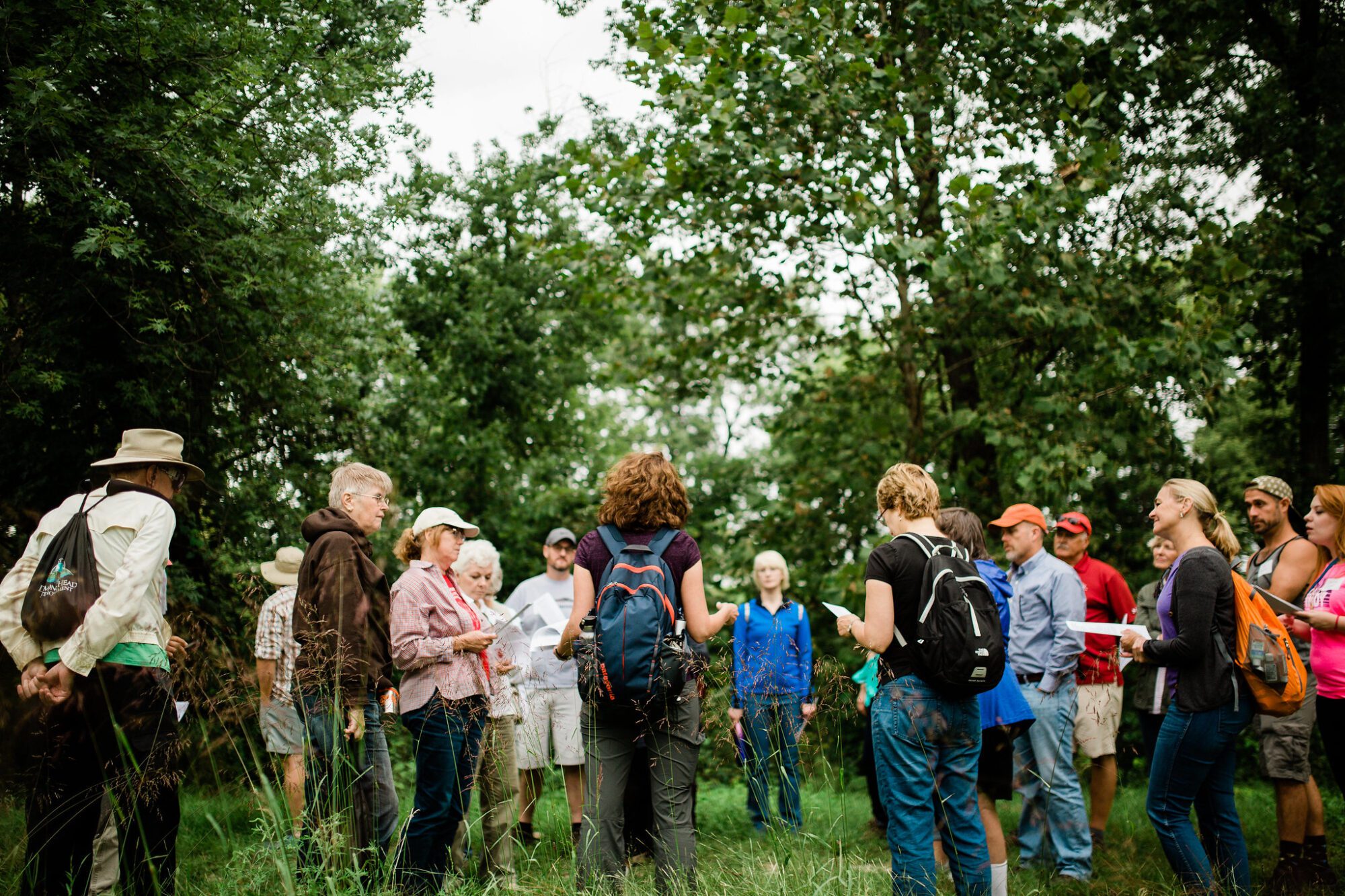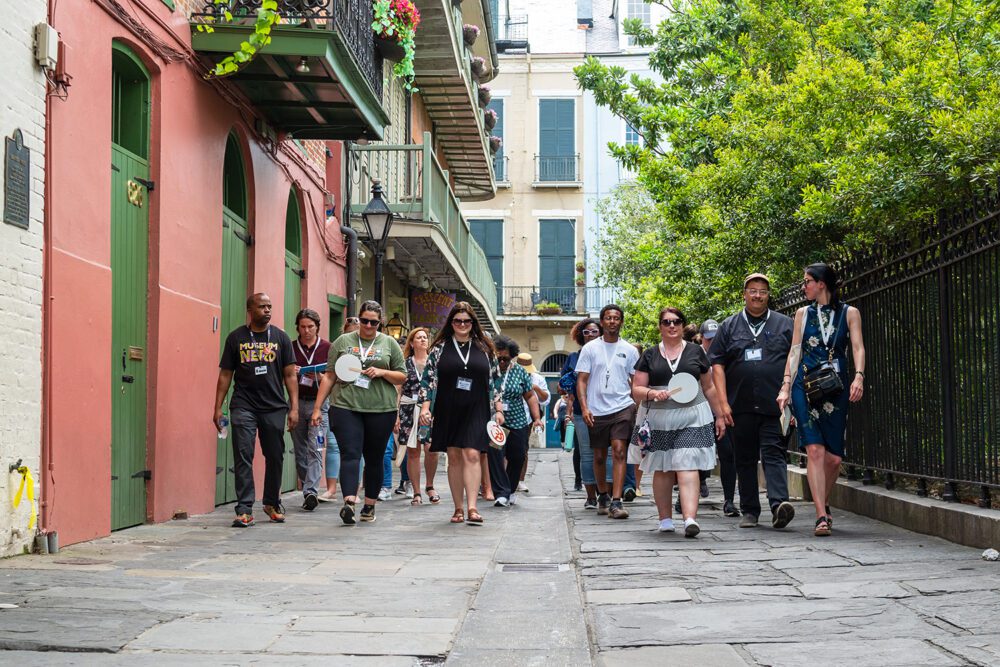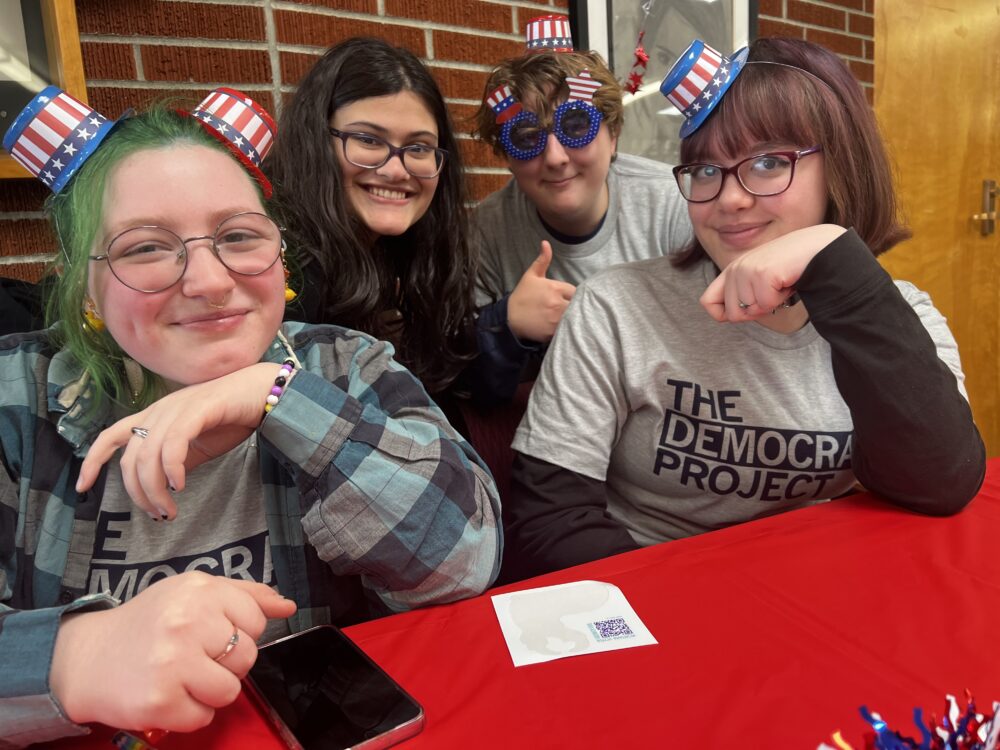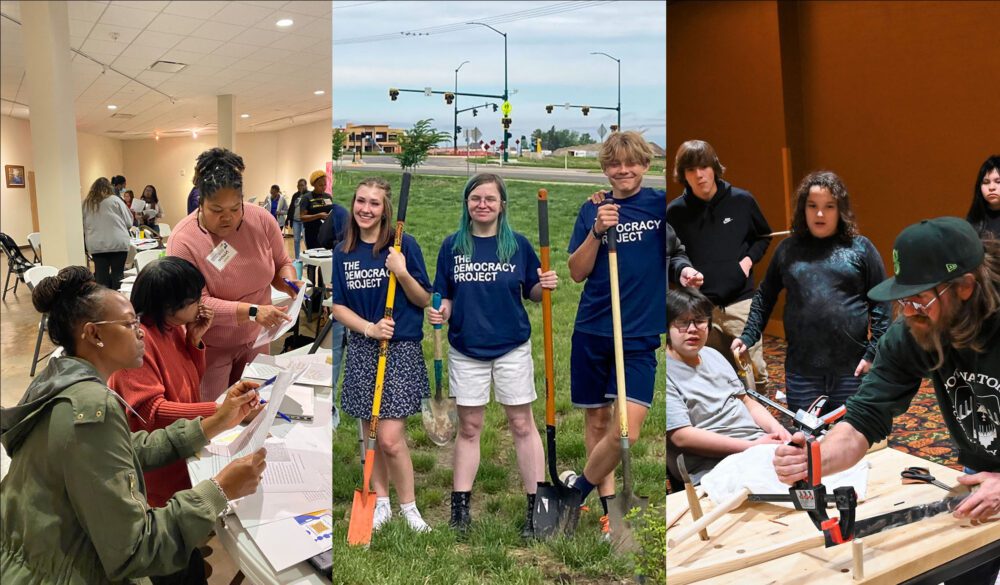What are Humanities Councils and What Do They Do?
Ever since the Department of Government Efficiency (DOGE) directed the National Endowment for the Humanities (NEH)to terminate all federal funding for humanities councils on April 3, humanities councils have received significant national and local news coverage. Humanities councils reach millions of Americans each year with their programs, grants, and digital services; however, many people hadn’t heard about this network of humanities nonprofits before this moment.
There are 56 state and jurisdictional humanities councils, one in each state, territory, and Washington, DC. Established in 1971 by Congress following the creation of NEH, their mandate is to make outstanding public humanities programming accessible to everyday Americans. Humanities councils are independent nonprofits that use federal funds—distributed through the National Endowment for the Humanities—to make sure every community in their state, no matter what their geography or resources, has access to high-quality humanities programming and grants.
Because each state and territory has unique needs, each council is, by necessity, unique as well. Humanities councils work closely with partners across their state to tailor grants and programs to their state’s specific culture and challenges. This means it can be a challenge to sum up all that humanities councils do in just a few sentences. Instead, we’re starting a new series to share examples of programs, grants, partnerships, and initiatives from around the country that showcase the many ways humanities councils have a positive impact on their states’ cultural vibrancy and economic vitality.
We hope these examples inspire you to find your humanities council and learn more about the role they play in your state or territory.
States featured in this article: Arizona | Alabama | Idaho | Indiana | Louisiana | Maine | Oregon | South Dakota | Tennessee
If you are a journalist or producer and would like to learn more about any of these stories or be connected with humanities councils and their grantees, please contact the Federation at connect[at]statehumanities.org.
Indiana Humanities sparks conversations by combining wild places, great writing, and warm campfires
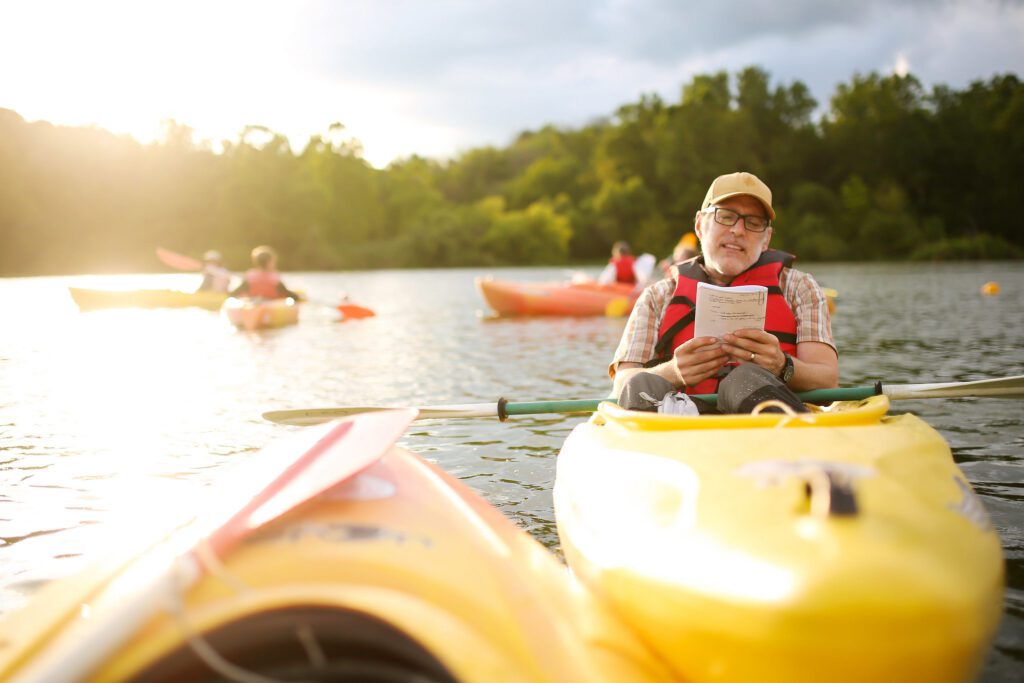
Indiana Humanities’ award-winning Campfires program pairs nature and literature to spark conversations about Indiana’s future. Indiana Humanities describes the program this way: “Something about the combination of wild places, great writing, a warm campfire, and cold beer gets Hoosiers talking in fresh and surprising ways about the world around us and our place in it.” Over the years, they’ve taken Hoosiers on indelible hikes and paddling trips, sponsored the creation of original films about Indiana waterways, and published an anthology of their favorite Hoosier environmental writing.
This photo comes from Campfires Float, a combined rowing and poetry reading experience led by a nature guide and scholar who made connections between the readings and the natural site. The lead image in this post is also from a Campfires event
Learn more about Indiana Humanities.
Alabama Humanities Alliance brings Smithsonian exhibitions to small towns and rural communities
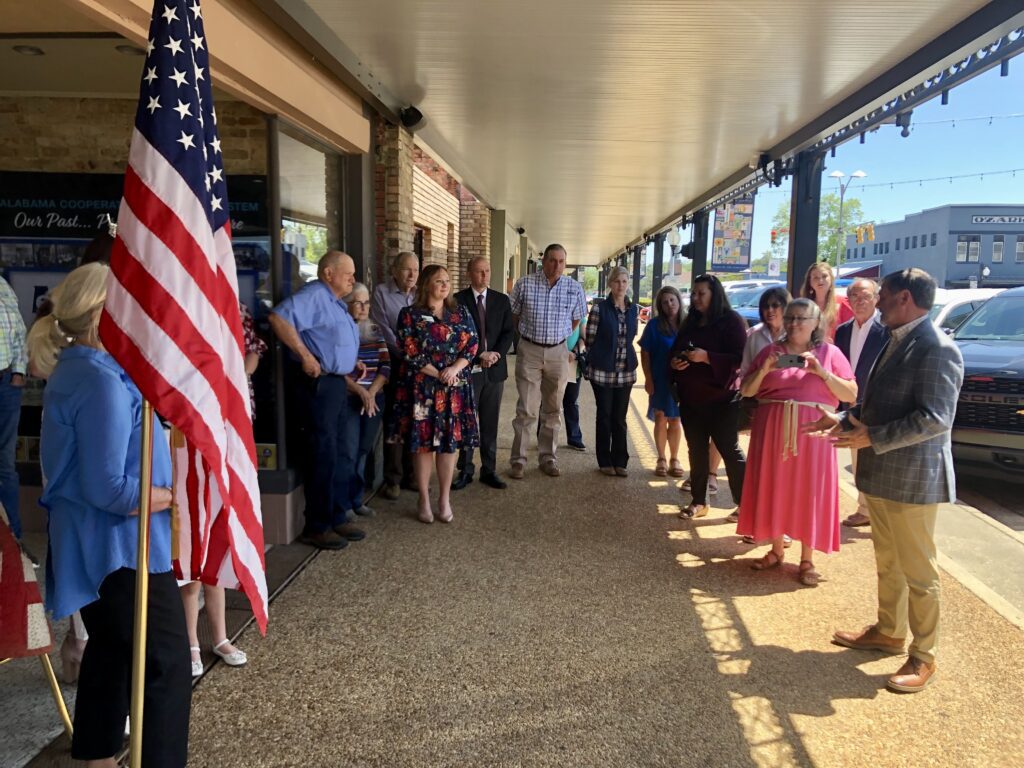
The Alabama Humanities Alliance is one of many humanities councils that partner with the Smithsonian to bring national exhibitions to small towns in their states. Since 1997, the Alabama Humanities Alliance has partnered with the Smithsonian’s Museum on Main Street program to bring a dozen national exhibits to 63 small and rural communities across the state. Museum on Main Street exhibitions are designed to engage communities and become a catalyst for conversation about life in small-town America. Over six weeks, the exhibit and locally developed programming are designed to start dialogue, build excitement, facilitate connections, and open doors to each community’s history, culture, people, and sense of local pride.
The partnership between humanities councils and the Smithsonian does more than just put up an exhibit for six weeks. It also increases local humanities capacity and inspires community investment long after the program is over. The Alabama Humanities Alliance shared the following success story with us: “A Smithsonian traveling exhibit we brought to Alabama a decade or so ago inspired an East Alabama town to build its own history museum. The museum opened in 2023, and we featured the story in our magazine. We have a similar success story about a Smithsonian traveling exhibit we brought to the town of Elba, which helped spur community support for a once-iconic theatre on their town square. That theatre is now open and contributing significantly to the town’s cultural fabric and economy.”
This photo comes from a ribbon-cutting in Ozark, Alabama that celebrated the opening of the Crossroads: Change in Rural America exhibition in their downtown. This Smithsonian traveling exhibit looked at the remarkable evolution in rural life over the past century — and explores how Americans have responded and adapted. The exhibit was paired with local programming and allowed visitors to consider the central role of rural Alabama in our shared future. It was one of five stops statewide for the exhibit across 2023-2024.
The Idaho Humanities Council funded a rural historical society’s project to compile 400 biographies of local veterans
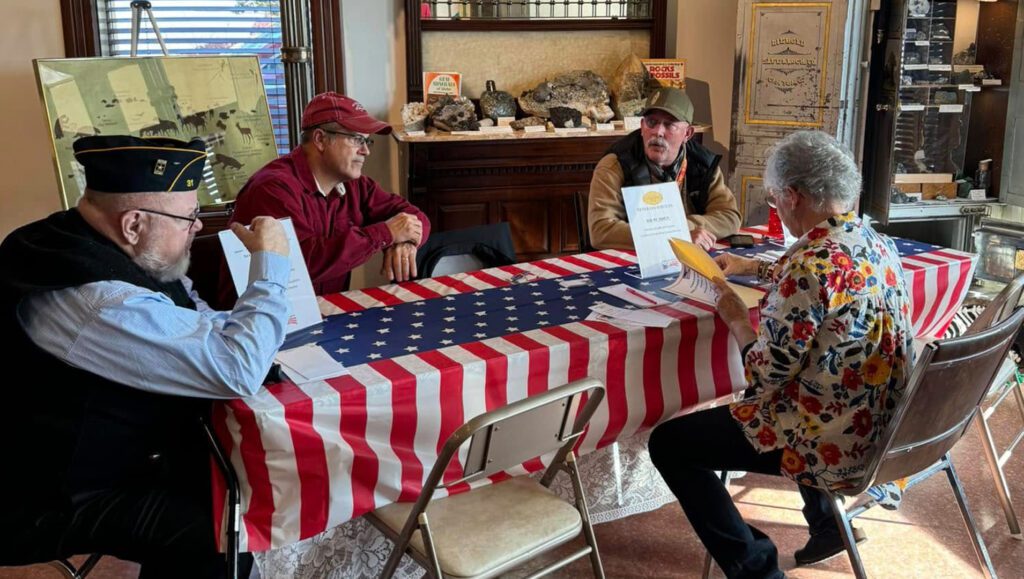
In 2024, the Idaho Humanities Council awarded the Hagerman Valley Historical Museum $998 for their project, “Hagerman Valley Military Appreciation Project.” The project consisted of compiling over 435 biographies for individuals who have served in the U.S. military or as military support workers and were born, lived, or are buried in the rural Hagerman, Bliss, and Tuttle areas. The resulting booklets were unveiled and made publicly accessible for visitors at a Military Appreciation Day at the Hagerman Valley Historical Museum on November 9, 2024. This photo is from that event.
In 2024, the Idaho Humanities Council awarded small grants to 66 organizations and individuals across Idaho. Grant-making is an important role for most humanities councils. Their grants are accessible to small organizations like museums, historical societies, and rural libraries that—due their size or lack of capacity—might otherwise have difficulty securing grants. In total, humanities councils award $37.5 million in 3,500+ small grants each year to community organizations and projects.
Learn more about the Idaho Humanities Council.
Louisiana Endowment for the Humanities started a family reading program that’s boosting generational literacy around the country
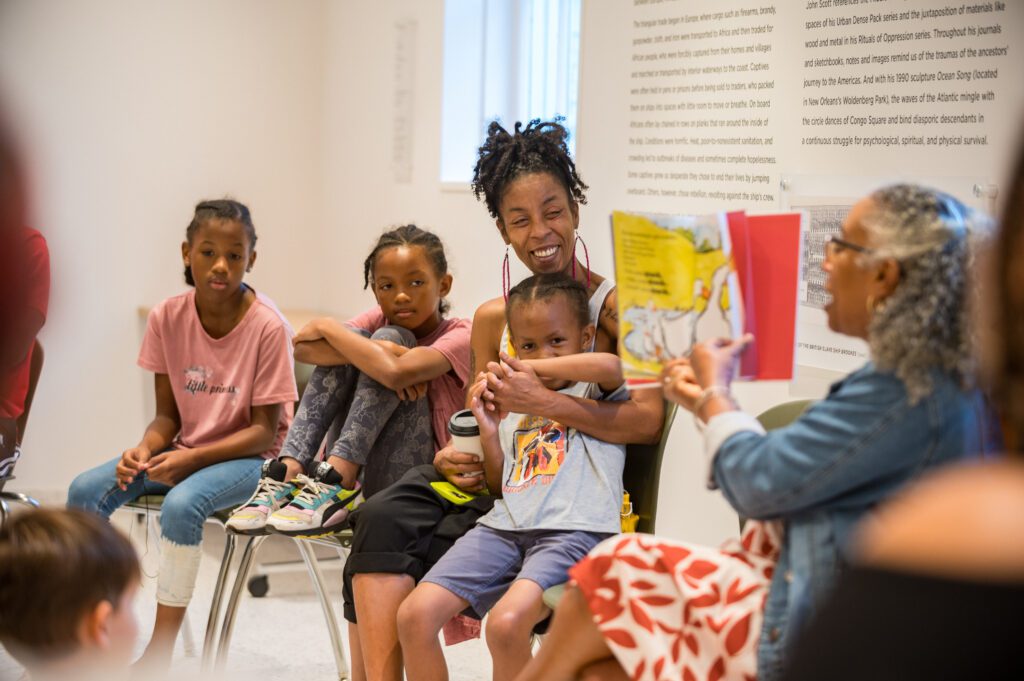
Created by the Louisiana Endowment for the Humanities (LEH) in 1991, Prime Time offers programs designed to engage, educate, and support children and their families. This LEH-run set of programs uses children’s books as a starting point for discussions and activities that explore important ideas about life, family, and building community. Prime Time Head Start and Early Head Start are free, federally supported programs that promote school readiness for infants, toddlers, and preschoolers up to age five. Prime Time reading programs are free to all participants and offered after school to provide the time and space for family bonding and engagement.
In this photo, Prime Time Storyteller Natalie Marshall Williams reads to families during a workshop that teaches parents techniques to make reading time at home more meaningful and to empower them in their role as their child’s first teacher.
While the Louisiana Endowment for the Humanities works to serve children and families across Louisiana, their program is also offered by other humanities councils, who use Prime Time to serve families in Delaware, Florida, Iowa, Kentucky, Michigan, Nebraska, and Washington.
Learn more about the Louisiana Endowment for the Humanities.
The Maine Humanities Council brings people together around the Big Questions
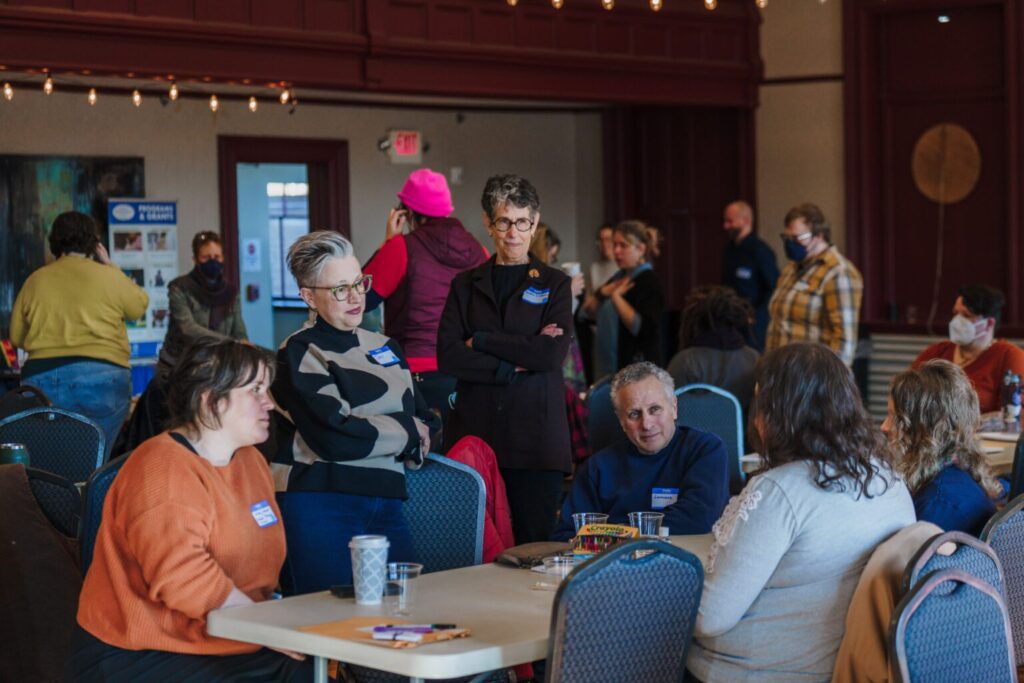
Every year, the Maine Humanities Council asks a Big Question. “Really big questions,” they explain, “are the questions that all of us find ourselves asking in the course of our lives, and that we have to keep on asking, because there isn’t just one answer.” The Big Question program finds one of these questions and invites a handful of guides with very various expertise and interests to get Maine communities thinking by sharing how they ask and answer it.
This photo is from a Big Question event in February 2024, where community members gathered at the Bangor Arts Exchange and live online via Zoom for a day of wondering, pondering, and discussion led by people who engage with year’s big question: “What do we hold onto? What do we let go?” Discussion leaders explored the question as it relates to important avenues of life like handling the past, exploring the world, witnessing death, our place in the food web, our relationship with the tools, and tech we use. Discussion leaders included a chef, a professor of anthropology, a museum director, and someone who helps people at the end of their lives. Sparking conversations around our shared humanity is a goal shared by many humanities councils.
Learn more about the Maine Humanities Council.
Each year, South Dakota Humanities gives every third grader in the state a free book to ignite their love of reading
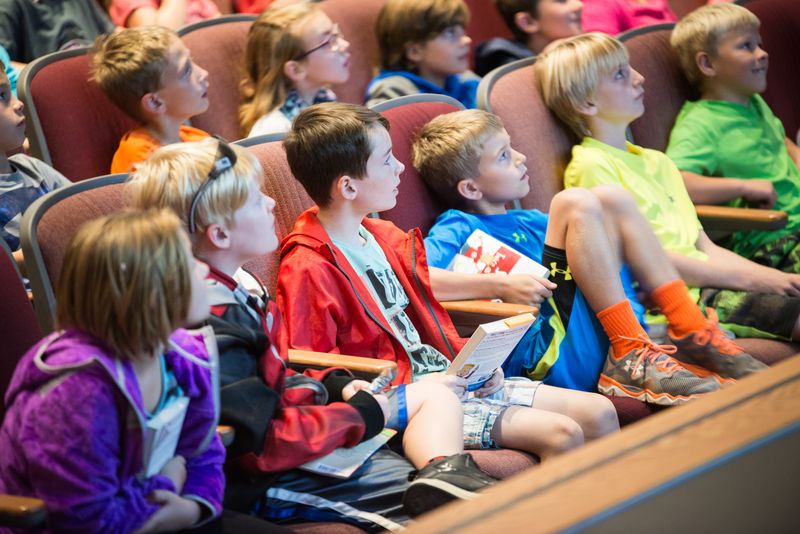
Every year (since 2014), the South Dakota Humanities Council (SDHC) selects a book to give to third graders across the state through their Young Readers program. The third graders receive their own book and opportunities to interact with the author or illustrator, while their educators receive classroom materials to support the reading curriculum. SDHC began the program with just giving out just a few thousand books each, but thanks to private donors, their reach grew. In 2024, the South Dakota Humanities Council reached a milestone when they gave a book to every single third grader in the state; that’s 14,000 students in 381 schools!
Why third graders? SDHC says they focus on third graders to help shape powerful learning habits and increase youth reading achievement levels when they’re the most impressionable. When children move into fourth grade lacking an adequate foundation to be independent, they have a higher likelihood of dropping out of high school, reducing their potential earnings and chances for success.
The 2025 Young Readers One Book is Wings of an Eagle: The Gold Medal Dreams of Billy Mills. It is a dramatic and inspiring autobiographical tale of overcoming odds by Lakota gold medalist Billy Mills and co-author Donna Janell Bowman, with stunning illustrations by award-winning Lakota artist S.D. Nelson.
This photo shows third graders—books in hand—enjoying a presentation at their school.
Learn more about the South Dakota Humanities Council.
Oregon Humanities is creating space and time for Oregonians to reflect on the 250th and what it means to them
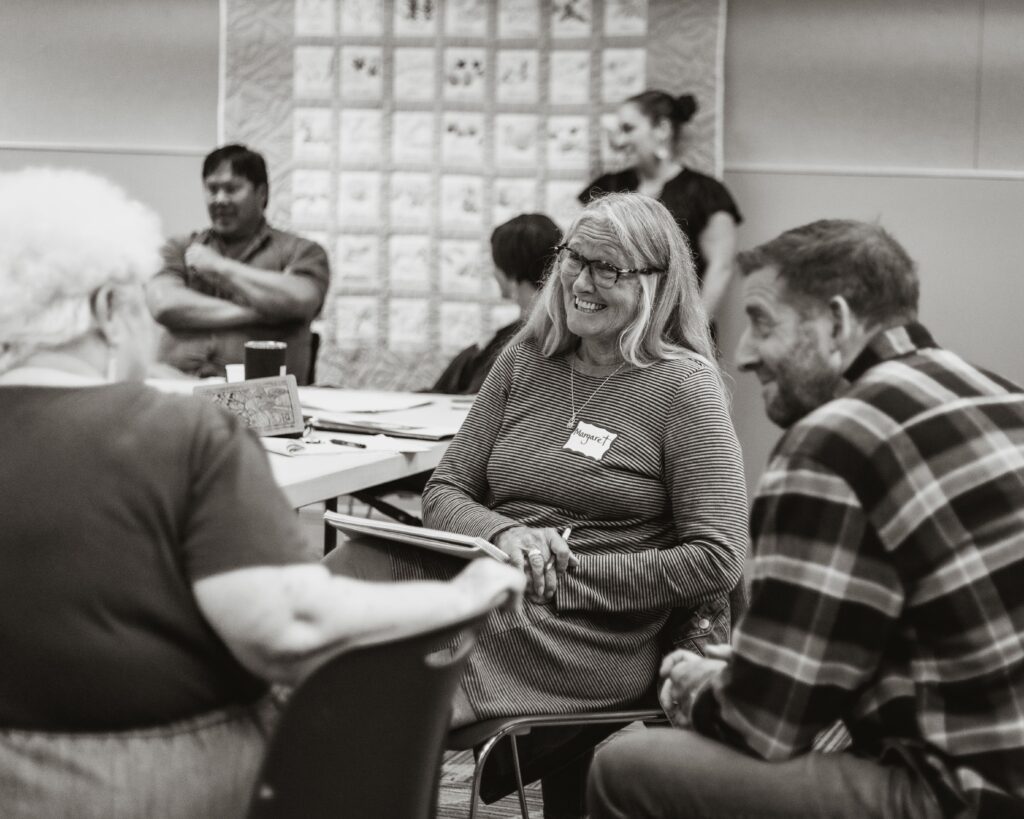
The United States of America will observe the 250th anniversary of the Declaration of Independence in 2026. Oregon Humanities believes this semiquincentennial of the nation provides “an opportunity to reflect on our complex founding and history, lift up under-told stories, and appreciate diverse perspectives about the past, present, and future of our nation.” They are calling their work on this anniversary “Beyond 250.” In 2025 and 2026, we will hold conversations, create spaces for reflection and mutual understanding, and think together about the next 250 years.
In this photo, Oregon Humanities Executive Director Adam Davis and other participants engage in a Beyond 250 facilitation training for library employees and board members in Newport, Oregon. Since 2024, Oregon Humanities has worked with Oregon libraries of all types (public, academic, school, and tribal) to train staff, volunteers, board members, and program partners to plan and lead conversations about freedom, equality, monuments and memories, the future, and other topics. To date, they have held trainings in partnership with libraries in Maupin, Grants Pass, and Newport for people associated with libraries throughout the wider regions where these libraries are situated.
Learn more about Oregon Humanities.
Arizona Humanities partnered with other state organizations to hold an Indigenous Literacy Symposium for K-12 teachers
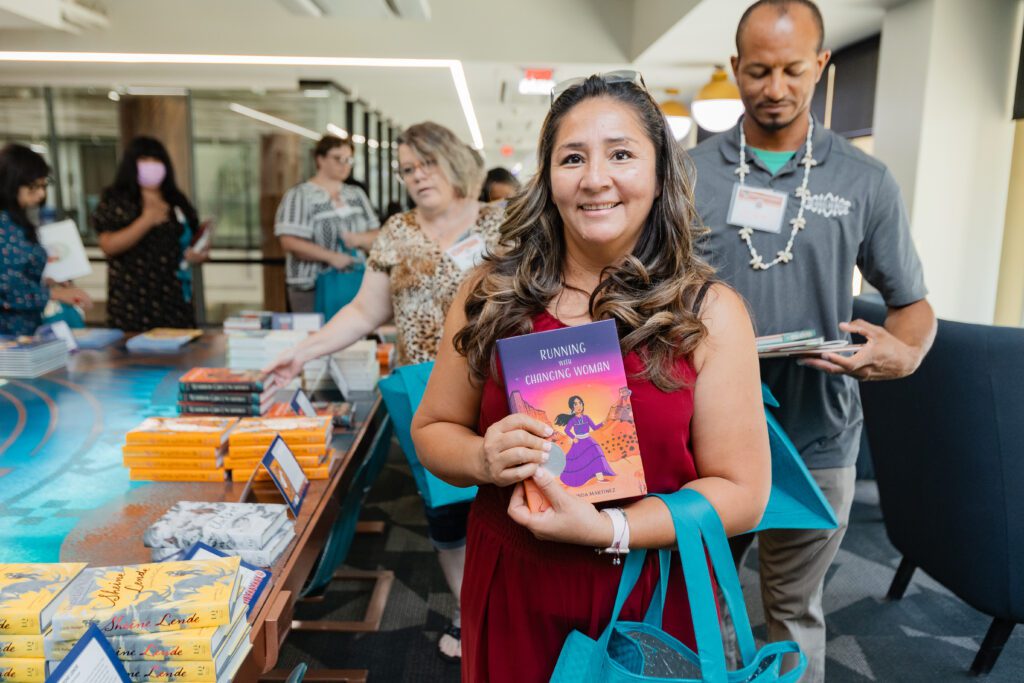
In 2024, Arizona Humanities partnered with the Arizona Department of Education, the Arizona State University – Labriola National American Indian Data Center, and the Arizona State Library to produce a free K-12 Indigenous Literacy Symposium for Arizona teachers focused on literacy development with Native American students. Teachers had the opportunity to learn about evidence-based instructional strategies, network with other educators, earn six hours of professional development credits, and walk away with free books for their classroom.
Arizona Humanities is one of many humanities councils that provide professional development, curriculum support for K-12 educators in their state.
Learn more about Arizona Humanities.
Every year, Tennessee Humanities puts on the Southern Festival of Books, one of the oldest literary festivals in America
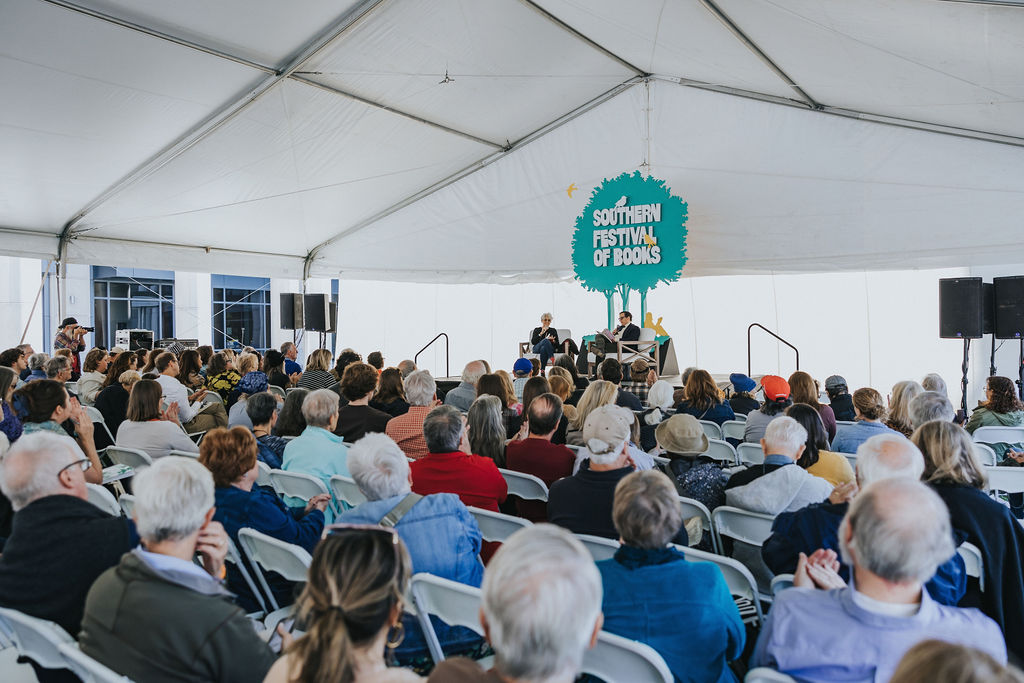
The Southern Festival of Books: A Celebration of the Written Word—a program of Humanities Tennessee—is among the oldest literary festivals in the country, annually welcoming hundreds of authors and thousands of visitors to downtown Nashville each October. The Festival is free and includes performance stages, food trucks, and loads of publishers and booksellers.
In this photo, attendees at the 2024 Southern Festival of Books enjoy a talk from Joan Baez and Simon Van Booy.
